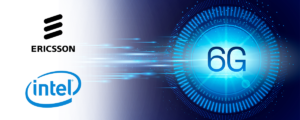
Although 5G is still being rolled out across India, telecom providers are already exploring the development of 6G technology. This upcoming network generation is anticipated to heavily rely on artificial intelligence (AI), with experts forecasting that AI algorithms will be integral in autonomously managing 6G networks.
Sajan Paul, Managing Director and Country Manager for India & SAARC at Juniper Networks, noted that while new use cases are being explored in the 5G space, many telecom operators are still building their 5G infrastructure. He mentioned that although Airtel and Jio have made significant progress, other providers are catching up, and 5G deployment is ongoing.
All eyes on 6G!
— DoT India (@DoT_India) July 30, 2024
✅After world’s fastest 5G rollout… pic.twitter.com/Zs4917hZNv
As 6G remains in the early stages of development, work on the frequency spectrum has begun, potentially marking the first time the spectrum extends from gigahertz to terahertz. Paul indicated that standardization is in progress, with commercial launches anticipated around 2029-30.
Also Read:
What is Bharat 6G Alliance (B6GA)?
Aim of Bharat 6G Alliance
Recently, the Ministry of Communications announced that the Bharat 6G alliance has formed strategic partnerships with Europe’s 6G IA and the 6G Flagship program from Oulu University in Finland. These collaborations aim to advance innovations in 6G technology.
The memorandum of understanding (MoU) aims to connect research and development (R&D) companies, academic institutions, and research organizations in both the EU and India. The focus is on synchronizing 6G research and development efforts, fostering joint research projects, piloting 6G technologies and applications, and contributing to global standardization initiatives. Bejoy Pankajakshan, EVP and Chief Technology and Strategy Officer at US-based Mavenir, mentioned that countries like India, the US, China, and Europe are all actively pursuing 6G initiatives, expecting significant economic benefits from the technology.
Pankajakshan noted that while 5G was projected to boost the economy by trillions, 6G is expected to have an even greater impact, with AI playing a crucial role in the sector’s evolution. From a standardization perspective, the International Telecommunication Union (ITU) has recently published the framework for 6G standards and radio interface technologies. The 3rd Generation Partnership Project (3GPP), responsible for defining these specifications, is expected to start work in 2025-26, with initial specifications likely to be released by 2028-29 and potential services launching around 2030.



